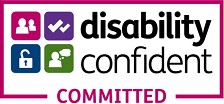This introductory course and is intended for those who have some knowledge of computers but would like to know more about Cybersecurity. You may be considering a career in Cybersecurity and will use this to give you a taste of what is involved. This qualification is knowledge based and will be assessed through a portfolio of evidence. It will help you to learn about cybercrime and learn to understand routine protective methods use to maintain cybersecurity, including the principles of vulnerability and penetration testing and user access control.
Award Level 1 in Cyber Security
When & Where
-
7 November 2024 - 20 March 2025 ( 48 hours, 16 weeks )
- Evening, Thursday
-
View course timetable
-
Online
Quick Facts
- Availability Yes
- Course Code K24ITCA01B
- Suitable For 19 year olds and up are permitted on this course
What you will learn
Learning Outcomes
By the end of this course, you will be able to:
- Phishing: using fake email messages to get personal information
- Stealing/misusing personal information (identity theft)
- Hacking: accessing, shutting down or misusing websites, networks and IT systems
- Advocating terrorism-related acts
- Email and internet fraud
- Theft of financial or card payment data
- Theft and sale of corporate data
- Cyberextortion (demanding money to prevent a threatened attack)
- Ransomware attacks
- Denial-of-Service (DoS) attack
- Cryptojacking (where hackers mine cryptocurrency using resources they do not own)
- Cyberespionage (where hackers access government or company data)
On successful completion of the course, you will achieve the following qualification: Award in Cybersecurity [GATEWAY]
Class format and activities
This course will allow students to learn about cybercrime. They will understand routine protective methods used to maintain cybersecurity including the principles of vulnerability and penetration testing and user access control. Looking at the following assessment criteria: 1.1 Identify different forms of cybercrime and possible motives. 1.2 Outline how cybercrime can affect individuals and organisations. 1.3 Describe the tactics cybercriminals use to defraud people. 2.1 Identify routine importance of cybersecurity testing. 2.2 State the importance of cybersecurity testing. 2.3 Set up user access controls. 3.1 Identify protections for and responsibilities of individuals and organisations as set out in key legislation. 3.2 Describe ethical and unethical conduct in relation to cybersecurity.
Entry requirements
Proficiency in basic ICT at least Level 1. At least Entry 3 English & maths.
What you need to know before you enrol
You must make sure you can commit for the whole duration of the course. We expect you to commit to the course by having 90% or above in attendance. You are more likely to be successful if you attend all your lessons. The sessions are face to face at the North Kensington centre. From time to time we reserve the right to have an online lesson.
What you need
You will need a USB/Memory stick and a folder. Pens and paper will be required. You will need an access to a computer at home and do some independent studying.









